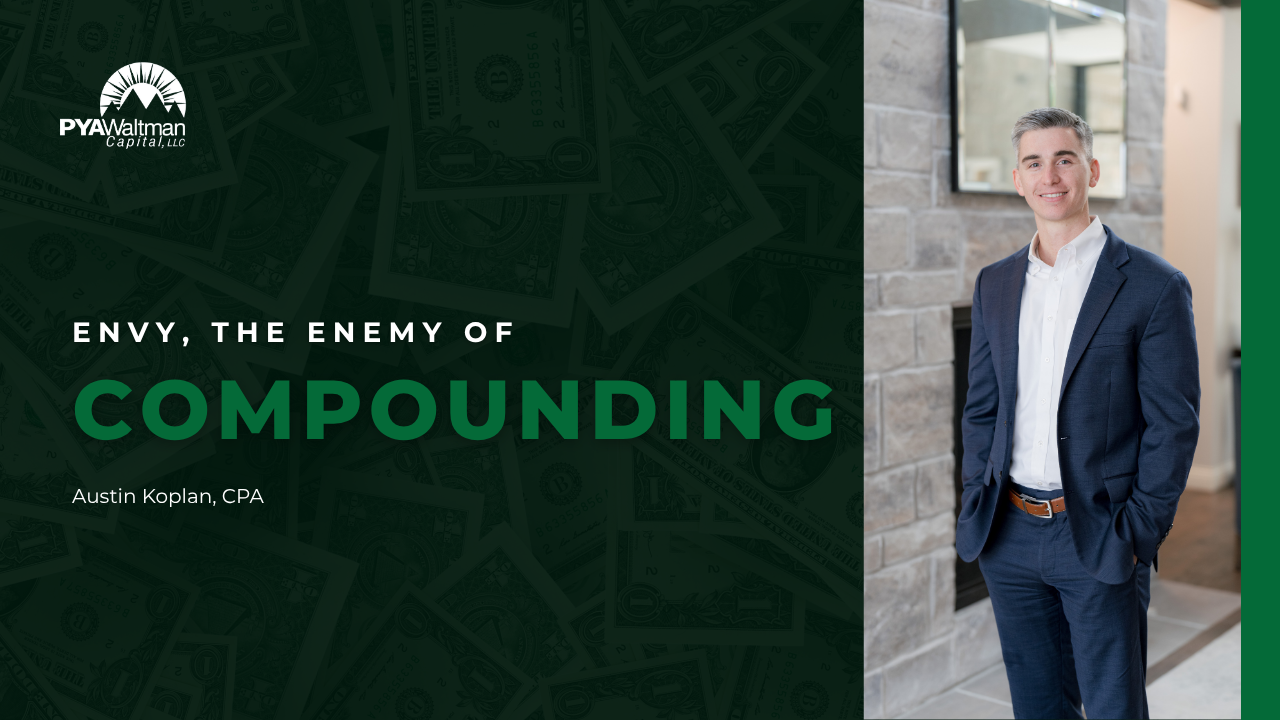In 2021, the late Charlie Munger said “The world is not driven by greed, it’s driven by envy” while speaking at the annual meeting for the Daily Journal, where he served as chairman of the board since 1977. This was not the pessimistic view of an old man nostalgic for a past long forgotten, but a sober realization of a persistent flaw in human nature.
“Few of us can stand prosperity. Another man's, I mean.” – Mark Twain
“Nothing so undermines your financial judgment as the sight of your neighbor getting rich” – J.P. Morgan
“There is nothing as disturbing to one’s well-being and judgment as to see a friend get rich.” – Charles Kindleberger
“You can't stand to see your neighbor get rich knowing you're smarter” – Warren Buffett
This imperfection can be traced back hundreds of years, providing evidence of envy’s grip on the human psyche.
In the 1700s, the South Sea Company had a monopoly on Britain’s trade with Latin American colonies while also serving as the clearinghouse for British government bonds. What was largely a rather dull business of collecting interest from the British treasury and paying it out to bondholders quickly transformed in 1720. The company proposed (with the government’s approval) the option for bondholders to exchange their government debt for South Sea Company stock. The exchange became a wild success and sent shares of the company skyrocketing.
Prior to the exchange announcement in February 1720, Isaac Newton held a large portion of his wealth in South Sea Company shares. Yes, the Isaac Newton that formulated laws of motion and gravity, made advancements in the telescope, and developed calculus. By April of that year, Newton believed he had made enough money and cashed out of all his shares for £400-500/share, clearing a profit of nearly $4M in today’s terms – equivalent to 200 years of his former annual salary as a professor at the University of Cambridge.
Yet, shares continued their ascent. By June, the stock approached £800, and Newton, unable to bear watching others profit while he seemingly 'lost' money by selling early, succumbed. This time, he bought in even more aggressively, reinvesting his entire profit and then some. By August, however, the sentiment began to shift and by early November the company shares had crashed below £200.
Newton was far from the only one caught up in the mania of the time, but there were few, if any, that had the capacity to think and reason close to the level he could. A member of Parliament, Archibald Hutcheson, had calculated that the stock was overpriced as early as March that year and even published his findings. Newton could undoubtedly grasp the calculation, but his underlying motivation wasn't rooted in logic. In response to his costly lapse in judgment, Newton is quoted as saying,
“I can calculate the motions of the heavenly bodies, but not the madness of the people.”
What was true 300 years ago remains true today. Stan Druckenmiller is widely regarded as one of the greatest investors of all time, boasting an average annual return of 30% over 30 years with no losing years. A record that is unlikely to be challenged, let alone broken. Yet even he was plagued by the same forces that once called to Newton. When reflecting on his worst investment mistake ever, Druckenmiller said,
“So, I'll never forget it. January of 2000 I go into Soros's office and I say I'm selling all the tech stocks, selling everything. This is crazy at 104 times earnings. This is nuts. Just kind of as I explained earlier, we're going to step aside, wait for the next fat pitch. I didn't fire the two gun slingers. They didn't have enough money to really hurt the fund, but they started making 3 percent a day and I'm out. It is driving me nuts. I mean their little account is like 50 percent on the year. I think Quantum was up seven. It's just sitting there.
So like around March I could feel it coming. I just - I had to play. I couldn't help myself. And three times during the same week I pick up a phone, don't do it. Don't do it. Anyway, I pick up the phone finally. I think I missed the top by an hour. I bought $6 billion worth of tech stocks and in six weeks I had left Soros and I had lost $3 billion in that one play. You asked me what I learned. I didn't learn anything. I already knew that I wasn't supposed to do that. I was just an emotional basket case and couldn't help myself. So, maybe I learned not todo it again. But I already knew that.”
So, if this is part of human nature and intelligence clearly isn’t a panacea, are we all doomed to fall prey to our most complex emotions, like envy? After all, even knowing what you are doing is wrong, like in Druckenmiller’s case, isn’t enough.
Not necessarily. While a trusted financial advisor can serve many roles, none may be as important as a sounding board and a dose of rationality when everything in the market around you appears most irrational. The hidden value of prudent investment advice can often lie not in investment performance, but in the unseen benefit of averted losses from investments wisely avoided.
There are obvious signs of excesses in the market today. Sports betting continues to surge, prediction markets are growing, options trading amongst retail investors is near an all-time high, meme stock euphoria is back, and many cryptocurrencies are at or approaching all time highs.
Some individuals you know will amass great wealth through sheer risk taking and luck. Many more will hear the same siren song but meet a much worse fate, just as Newton and Druckenmiller did at their greatest moments of envy. Jeff Bezos once asked Warren Buffett, “If your style of investing is so simple, then why doesn’t everyone copy you?” To which Buffett replied, “Because nobody wants to get rich slowly.”
Compounding is simple but not easy. It requires a great deal of time, discipline, humility, and patience. At the end of the day, take the advice of someone much smarter than me.
“Someone will always be getting richer faster than you. This is no great tragedy.” – Charlie Munger
The opinions expressed are those of PYA Waltman as of the day of publication and subject to change without notice. This material is for informational use only and should not be considered investment advice.
PYA Waltman is an investment adviser registered with the U.S. Securities and Exchange Commission. Registration does not imply a certain level of skill or training. More information about PYA Waltman’s investment advisory services can be found in its Form ADV Part 2 and/or Form CRS, which is available upon request. PYA-25-46



.png)
.png)

